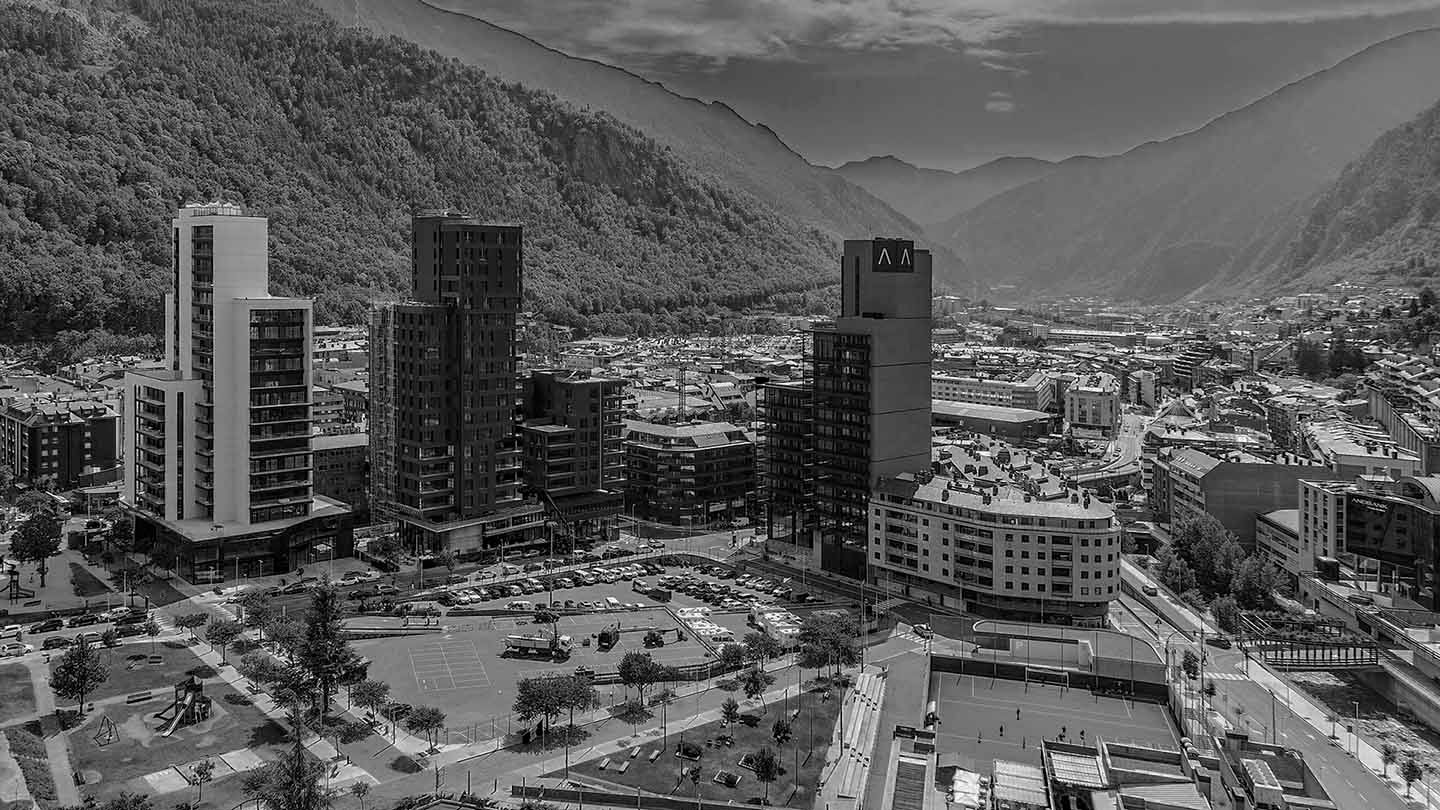Administrative and tax residence in Andorra: key differences
Differences between administrative and tax residence in Andorra: key rules, benefits and what to know before relocating or investing.

Reading time: 6 minutes
Understanding the two concepts
In a global context, administrative residence and tax residence are essential notions for anyone planning to live, invest or relocate abroad.
Although often confused, they serve different purposes:
- Administrative residence concerns the right to reside in a country.
- Tax residence determines where and on which income one pays taxes.
In Andorra, both can exist simultaneously, but not necessarily overlap. Understanding them is crucial for a sound relocation strategy.
In this article, we aim to clearly and simply distinguish the key elements of each type of residence, helping you make better-informed decisions in the future.
Before going any further, if your intention is to live in Andorra, we recommend reading Living in Andorra: the essential guide to obtaining residence and settling safely. This is a comprehensive guide covering Andorra and everything the Principality has to offer.
If you are not yet considering this option, you may find Living and working in Andorra: what you need to know before relocating useful, as it provides a broader overview of the Andorran context.

Administrative residence in Andorra
Administrative residence is the legal authorisation to live in the country for a specific period. It falls under immigration law and does not automatically entail tax obligations.
In Andorra, there are two main types of administrative residence: active residence and passive residence.
To better understand these two categories, we recommend first reading Active vs passive residence in Andorra: key differences and how to choose the best option.
🔹 Passive residence (without economic activity)
Designed for people not working in Andorra, such as retirees or investors.
Main requirements:
- Minimum investment in real estate or financial deposit in an Andorran institution.
- Health insurance valid in Andorra.
- Sufficient financial means.
- No criminal record.
Ideal for enjoying Andorra’s advantages without conducting a local business.
You can explore this option in more detail in Passive residence in Andorra: evolution, requirements and legislative changes.
🔹 Active residence (with economic activity)
For those wishing to work or start a business in Andorra.
It can be obtained through:
- Employment contract with an Andorran company; or
- Incorporation of a local company.
Applicants must prove solvency, health insurance coverage and a clean record.
The two main forms of active residence are residence with employment, intended for employees, and self-employed residence, aimed at entrepreneurs and business owners.
If you wish to explore the latter in greater depth, you can consult Self-employed residence in Andorra: requirements, advantages and real taxation.
All residence options
If your goal is to understand all existing residence permits, you can consult Types of residence in Andorra: all administrative modalities.

Tax residence in Andorra
Tax residence defines the fiscal link between a person and a country — determining where and how taxation applies.
An individual is considered a tax resident in Andorra if they:
- Spend more than 183 days per year in the country;
- Have in Andorra the centre of their economic or professional interests;
- Are presumed resident if their spouse and minor children live habitually in Andorra.
Tax residents are taxed on their worldwide income, under a competitive and transparent regime aligned with international standards.
To explore this concept further, we recommend Tax residence in Andorra: requirements and real advantages, which also addresses the differences between individuals and legal entities (companies).
Additionally, if you would like to better understand the OECD, you can read The OECD: what it is, how it works and why it shapes international taxation.
Andorran tax context
While being a tax resident mainly means being taxed under Andorran personal income tax rules, in practice it may also imply exposure to other taxes due to increased physical presence in the Principality.
For a holistic view of Andorra’s tax framework, you can consult Taxation in Andorra: a practical guide to understanding taxes, obligations and real risks.
If you prefer a simplified overview, Taxation in Andorra: structure, tax rates and real advantages may be more suitable.

Differences and relationship between both
The two statuses may coincide, but they are not mutually dependent.
Someone can hold administrative residence without being a tax resident, especially if spending much time abroad.
However, individuals who base their life and business in Andorra generally become tax residents as well.
This link directly impacts global taxation, double tax treaties, and international reporting obligations (CRS).
👉 For a broader comparative perspective, you may also consult Types of residence in Andorra: active, passive and tax, which provides a detailed analysis of each category and helps clarify the differences between them.
Double taxation treaties
Becoming a tax resident in Andorra allows not only access to domestic tax advantages, but also to the benefits arising from double taxation treaties (DTTs) signed between Andorra and other countries.
To understand how DTTs work, you can consult Double taxation treaties: the key factor determining where international income is effectively taxed.
If you are looking for a complete list of Andorra’s DTTs, you can consult Double taxation treaties (DTTs) in Andorra.
Future outlook
Andorra has evolved rapidly in recent years.
To understand how the residence framework has developed, you can consult Residence in Andorra: current stability and upcoming changes, which will help you better understand the context and the reforms underway.

Practical considerations and planning
Before applying for residence, it is essential to evaluate:
- The actual time spent in the country.
- The location of family and economic interests.
- The tax impact in both jurisdictions.
Proper pre-relocation tax planning prevents conflicts and ensures full compliance.
Working with experienced advisors helps structure residence and taxation efficiently.
Ultimately, the most important question in each case is to clearly define your objectives and, based on that, choose the most appropriate option.
Two concepts, two very different consequences
Administrative residence grants the right to live in Andorra; tax residence determines where taxes are paid.
Both must be considered together for a secure and compliant relocation.
Andorra combines fiscal attractiveness, stability and international transparency, making it a preferred destination for entrepreneurs and expatriates.
📞 Are you considering relocating to or investing in Andorra?
If you are thinking about settling in Andorra, feel free to contact us via the Contact form.
If, instead, you prefer a confidential and expert discussion from the outset, you can book a meeting just below this article.
We will be pleased to assist you in any case
Last updated: December 2025

Technical Author: Albert Contel



